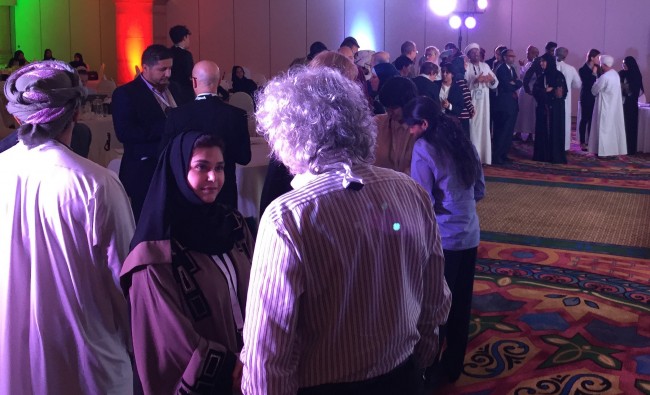Building productive global partnerships
Collaborating between different organisations, in different geographies, and with different cultures, is inevitably very difficult. And so no matter what you are doing, it’s tempting not to even bother attempting to collaborate, and rather to try to do it all yourself. However working in isolation seldom works, especially if you are trying to deal with complex situations and foster innovation.
This fact was highlight this week with the historic global agreement in Paris on climate change was negotiated using an ancient Zulu custom known as indabas; a process which ensures that everyone is heard equally, issues are identified and then people systematically work together in sub-groups address any disagreements and find a resolution. This approach is very similar to how the best open innovation communities and programmes work as well.
In a globalized and increasingly connected planet, productive global partnerships are not only increasingly possible but more important than ever. However these partnerships don’t just happen by themselves. They require vision, persistence and pro-active facilitation throughout.
“If you want to go fast, go alone. If you want to go far, go together.”
African Proverb
At 100%Open we have spent much of the last few years building a wide variety of building global collaborations between large and small companies, and public and private sector institutions. For instance we have worked extensively over the past 2 years with 12 x large Colombian companies and 1000’s of smaller global companies (see here) to access new innovation opportunities together. In addition we have just completed a global competition with UBS, called the Future of Finance Challenge, designed to access the best disruptive and innovative technologies from 52 different countries all around the world. And lastly we are currently working with UK companies to grow their business in Asia.
Therefore when I was invited to speak at a recent conference in Oman called Inconet on fostering stronger collaboration between European countries (EU) and Gulf Arab States (GCC). I was intrigued by the opportunity, as I have absolutely no doubt at all that people, companies and governments from both regions have a huge amount to learn from each other, especially, in an era of historically low oil prices, in the field of resource and energy efficiency.
At the same time I was somewhat reticent as I have seen too many large, government backed initiatives over the years where large amounts of public money are wasted in meaningless initiatives with unclear objectives and endless administration. However I thought our recent experience might be relevant to the discussion, and had strong encouragement to participate from one of the organisers whom I like and respect, and so I decided to accept.
At the event itself, there were over 100 people attending from across the GCC and EU regions. However the conference format was traditional with lots of presentations followed by Q&A and little facilitated networking at all.
When it was my turn to present, my sense was that people in room wanted to talk to each other. And yet I was cautious about deviating from the format too much as, whilst I’m pretty well travelled, I still feel I have a lot to learn about the business culture in the Middle East and whether our usual tools and techniques will work there.
As it’s my third time to the region I decided to start with inviting people to line up according to their birthday to show the surprising result that there are lots of people in the room who share a birthday, and that we are always much more connected that we realise. Then I invited people to turn to somebody they don’t know, introduce themselves, and then come up with something they could do together in just 3 minutes. The ideas they came up with were brilliant, and I was so pleased that the exercise was well received.
“Connect on your similarities and benefit from you differences.”
Valdis Krebs
This enabled me to share our experience of working in Abu Dhabi, Dubai, Colombia, as well as some of our work with the likes of LEGO, UBS and Unilever. Collectively these experiences have taught us that:
- You can’t beat being there in person. Whilst I love using online tools, and we have some pretty fantastic ones that we use again and again.
- Over communicate in short sharp bursts. Daily 15 minute calls with UBS really helped drive the collaboration of a geographically distributed team.
- Manage timezones. Connecting two time zones is ok. Connecting three or more. If people are dialling in, in the middle of the night they aren’t going to be fully engaged.
- Leave room for each other to add their expertise. Don’t say too much. Leave room for the imagination and expertise of others to create something new and better.
- Engineer equal and independent contribution from all participants. Make sure you hear from everyone and have a strategy to ensure that new ideas are owned and shaped by all participants.
- Respond well to unexpected actions or others. No matter how well you plan you partners will not always behave as you expect. However expect the unexpected and keep on nudging your collaboration forwards.
So I remain cautiously optimistic that the need for global partners is greater than ever and that we can collectively find a way to work together, and learn so much from each other. And I take some satisfaction that we are slowly but surely collectively learning, as we did in Paris last week, about how to work together across borders. And whilst I have no doubt that there will be plenty of inertia and frustration along the way, I am hopeful and cautiously optimistic that we can find a way to build productive global partners, together.
by Roland
